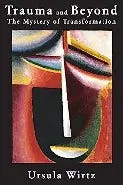This book has been written from a spiritual frame of reference in the widest possible sense. I have attempted to present an emerging paradigm shift in trauma therapy, one that focuses that the dark realm of the prima materia can be a source of creative liberation. Moving beyond the stigmatization associated with the structural dissociation of the personality that often accompanies trauma, I submit that traumatic experiences can serve as an initiation into an expansion of consciousness and that traumatic wounding opens the individual up to the possibility of seeing things differently and adopting a new way of being. I turned to the paradoxical nature of the unconscious, as both dangerous and yet beneficent, containing “the wisdom and experience of untold ages,” a wisdom that guided Jung in his time of terror and gave birth to the Red Book.1
Without trusting in the alchemical wisdom that truth, goodness, and beauty are often found in filth, and without believing in the transforming power of life and the fundamental possibility of becoming, I would not have been able to wander through the death landscapes of the soul. I have been guided in my work by a piece of wisdom passed on by Ramakrishna: “The winds of grace are always blowing; it is for us to raise our sails.”
The scope of this book has been broad: from the shattered value system of dehumanized man and experiences “at the mind’s limits,” which challenge all notions of human dignity and destroy the illusion of posttraumatic growth (“we didn’t leave Auschwitz wiser and deeper”), to the recreation of meaning, integrity, and wholeness of the posttraumatic Self.2 My sphere of thought is a humanistic one, acknowledging human vulnerability as well as human dignity in the face of trauma and the precariousness of life as much as its beauty and preciousness. For me, abysmal evil and darkness are part of our conditio humana, of the “drama of human freedom.”3 It is the risk we take, and the price we pay, for freedom.
I have worked almost half my life with trauma survivors, and it remains a mystery to me why people under the most extreme conditions and despite their freedom to choose evil have opted again and again for goodness. I perceive it as the path of wisdom to choose to adopt, even in full knowledge of destruction and evil, a nonviolent and loving attitude to oneself and the world at large. How to give expression to the wordlessness of violence has been the koan I have struggled with endlessly, searching for the metanoia that will open our hearts and help us to adapt creatively to what cannot be changed and strive courageously to change what can.4 I have learned that the paradoxes encountered in dealing with trauma are as incomprehensible as the paradoxes of love, which Jung referred to when he wrote:
In my medical experience as well as in my own life I have again and again been faced with the mystery of love, and have never been able to explain what it is. . . . Here is the greatest and smallest, the remotest and nearest, the highest and lowest, and we cannot discuss one side of it without also discussing the other. No language is adequate to this paradox. Whatever one can say, no words express the whole. To speak of partial aspects is always too much or too little, for only the whole is meaningful.5


